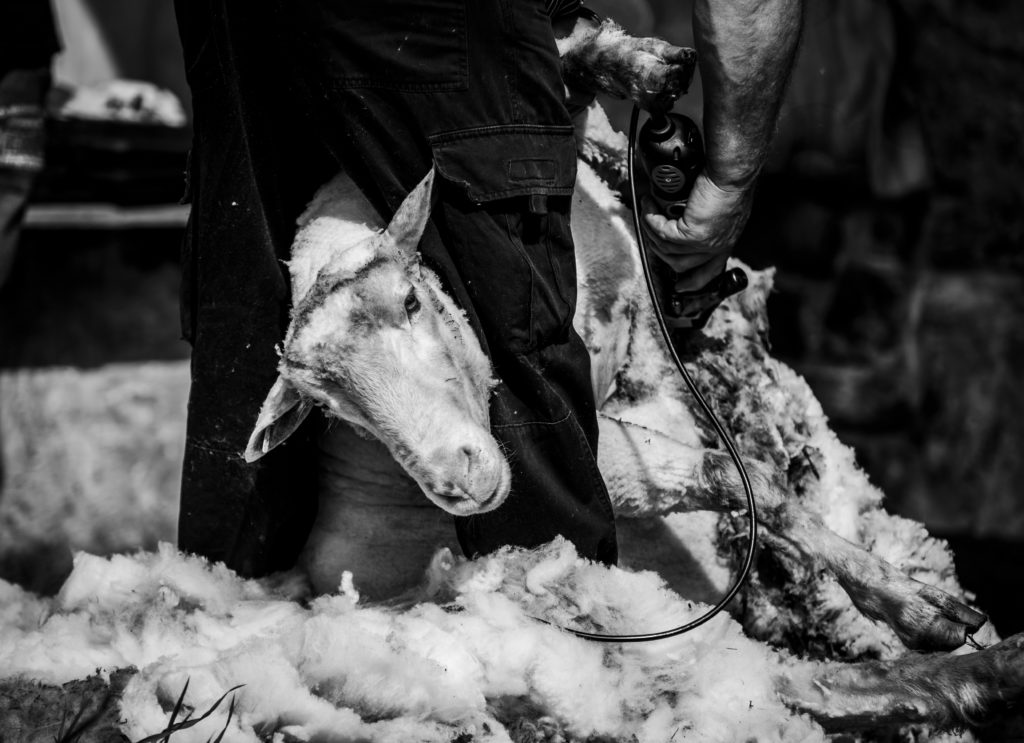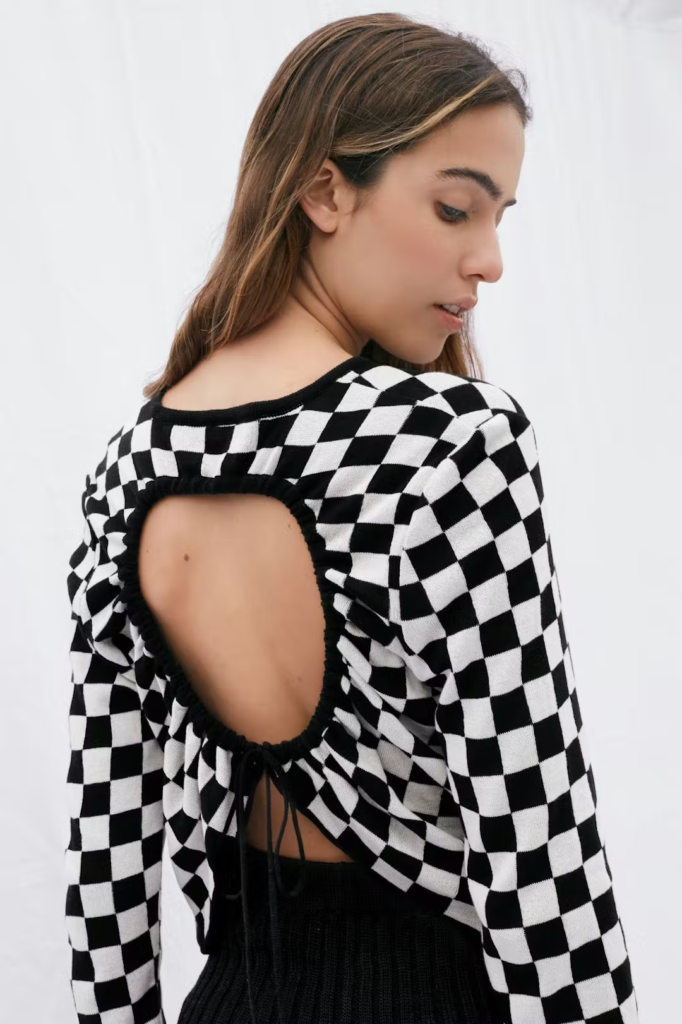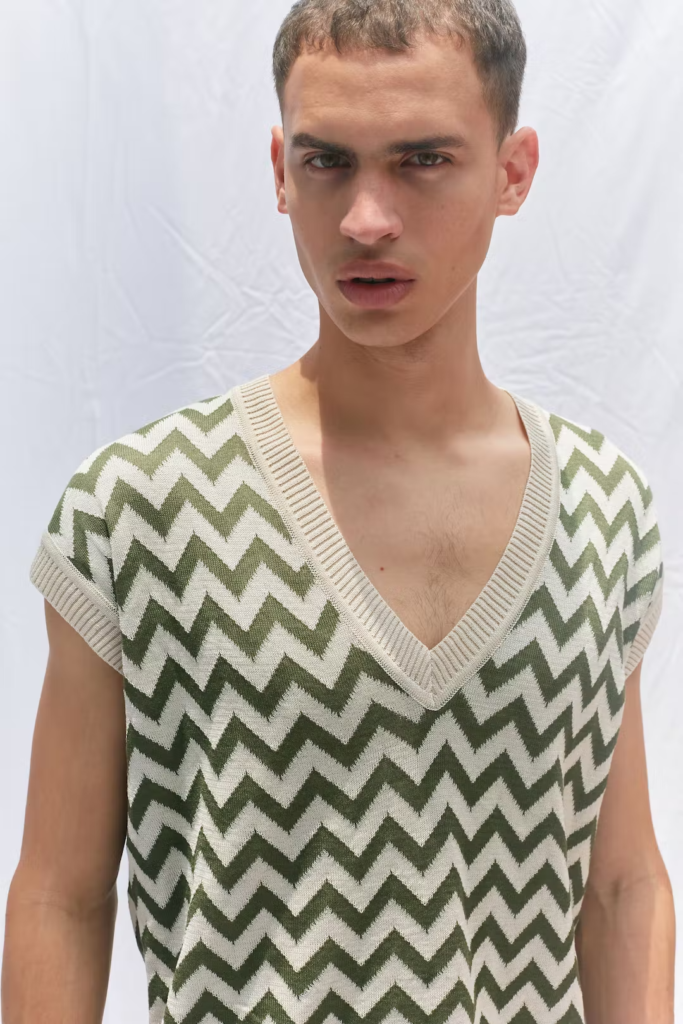November kicked off with World Vegan Day on the 1st, a welcome reminder of the importance of opting for plant power. When it comes to vegan clothing, the leather debate is often a hot topic and one which both consumers and brands are already highly engaged. Attempting to answer the question ‘Can Leather Ever Be Sustainable?’ is something we’ve also deep dived into before.
The thing with animal leather, is that it can only be attained when an animal is killed, typically a cow. The death of another living being is an essential step in the production of animal leather. Whilst there are complex nuances to the ethics surrounding pleather (often made from PVC), there are many innovations in the form of plant-based leather that are helping to drive the way for truly ethical and sustainable leather alternatives.
But of course, leather isn’t the only animal-based material present in fashion. Sheep’s wool, cashmere (goat) and alpaca wool are also frequently occurring fibres in our clothing. The key distinction between these and leather, is that the animal itself does not have to be killed to obtain the material. In that regards, it would seem that clothing made from such animal fibres are more ethical. So, is this true?
Why did we use animal fibres in the first place?
Natural fibres have traditionally been used in all cultures of the world to meet basic requirements of clothing, storage, building material, and for items of daily use such as ropes and fishing nets. The fibres used often depended on the local availability (Textile School).
Animal fibres such as wool, cashmere and alpaca are also highly regarded when made into garments, for desirable properties such as “soft touch, warmth, beautiful drape, excellent comfort in wear and, using modern synthetic dyes, unparalleled colouration possibilities with very few shade restrictions” (Bruce A. McGregor).
Wool alone currently accounts for 0.9% of the world’s global fibre market. In 2021 around 1.2 billion sheep produced around 1,945 2 million kilograms of raw wool for home and clothing textiles (IWTO).
The wool pulled over our eyes

The practice of obtaining wool and sheep shearing is, for many, underpinned by positive mental imagery, with sheep roaming freely across the countryside, with the occasional shearing to maintain their coats and keep the comfortable. As idyllic this mental image is to believe, it’s sadly often not the case.
A few years ago, ethical clothing company Patagonia discovered animal cruelty practices in what they had believed were ethical farms. The world has also been shocked by many undercover exposés revealing mulesing and tail docking, painful “surgical” practices legally performed with often with no pain relief (Good On You).
According to the RSPCA, mulesing is a painful procedure that involves cutting crescent-shaped flaps of skin from around a lamb’s breech and tail using sharp shears, making mulesed sheep less susceptible to flystrike in the breech area. Mulesing is usually carried out during lamb ‘marking’ when the lamb is between 2 to 10 weeks of age, which can encompass other painful procedures that are carried out at the same time: tail docking, castration (removing testicles in ram lambs), ear notching or tagging, and vaccinating.
Aside from concerning ‘standard’ surgical practices, there are also sustainable considerations to take into account when it comes to wool, as it is the highest greenhouse gas emitter during the fibre production phase compared to all other fabrics. Sheep release huge amounts of methane into the atmosphere, which directly contributes to greenhouse gas emissions and therefore, global warming (Sustainably Chic).
The importance of nuance in difficult conversations
As part of their ongoing ‘#IMadeYourFabric stories campaign, Fashion Revolution shared an Instagram post of a sheep farmer holding a sign saying ‘I Made Your Wool’. However, the post was met with criticism and backlash with comments like “Sheep made the wool… Not humans.”, “Exploiting animals isn’t something to be proud of. There’s other alternatives.” and “Total ethics fashion protects everyone: people, the planet, and animals — who are not commodities ❤️”.
Despite the campaign helping to bring a voice and transparency to the people in our fabric supply chains, the comments demonstrated a shift in attitudes towards how we consumers view animals (moving away from them being a commodity to sentiment beings). Of course, farmers need to make a living, but in this day and age, there are more future-proof options becoming available. Research conducted by The University of Sheffield (2020), found that sheep farmers would no longer need government subsidies if they allowed land to return to forest. Sheep farming is currently unprofitable without subsidies, but farmers could earn money by growing trees and selling carbon offsetting certificates – just one alternative which would benefit sheep and the planet.
New study by Sheffield University says upland sheep farmers would make more money planting forests for carbon capture rather than “farming” sheep which at present isn’t an industry at all, just a massive benefit handout scheme overgrazing our uplands and accelerating flooding. pic.twitter.com/NWWJL4unYx
— alex thomson (@alextomo) September 1, 2020
Personal ethics will naturally also play a role in what you do or don’t deem to be ethical. However, with so many plant-based, natural fibres available to us, the justification for using virgin animal fibres seems less and less excusable or necessary. The industrialised scale of farming for animal fibres is increasingly seeing animal welfare and wellbeing compromised in pursuit of profit. When animals are deemed nothing more than a commodity for human use and disposal, their unique and individual sense of being is diminished.
If we stopped breeding sheep for our own use and abuse, eventually only wild sheep who don’t need shearing would exist and they would be able to live freely (Animal Liberation).
So what are the alternatives?
Granted, sheep wool is a more biodegradable choice than oil-based synthetic fibres. However, when we take all available fibres and materials we have today, it still ranks poorly for both ethics and sustainability, in comparison to plant-based natural (i.e. organic cotton) and synthetic (i.e. Tencel) fibres.
There are ways we can limit the need for virgin wool and other animal fibres thanks to both more mindful consumer habits as well as innovations and suitable alternatives in the forms of plant-based natural fibres or even lab grown fibres.
Many people also believe wool to be an essential material for knitwear. But we are living proof that we no longer need to rely on- better yet, exploit- other living beings to produce the materials for our clothing.
Knitwear for the modern era: Genes

Many of us may have or still do associate wool as a necessity for cozy and stylish knitwear, but we needn’t have. There are so many vegan-friendly alternatives that offer all the same qualities to the wearer, without any of the exploitation.
One of our the newest additions to our growing Veo family is an example of just that. GENES is a long-lasting knitwear brand created and based in Lima, Peru. They make pieces only with natural fibres to ensure their quality over time and to reduce their impact on the environment.
The brand’s mission is to offer long-lasting knit garments, bringing awareness to the impact of slow fashion in caring for our environment, opting for materials like Peruvian Pima cotton.
Their goal is to inspire people to select rather than accumulate and to promote responsible consumption. That is why they produce timeless garments designed to be worn and kept in good condition through the years. Each piece is inspired by nature and art for its colours, fluidity, spaces and shapes. GENES was born out of a love for versatility and visual experience.



Good things are worth fighting for
When it comes to making changes across the fashion and textiles industry, there’s rarely ever quick fixes. Farming, production, manufacturing and distribution systems are global, intertwined and complex. Therefore, given the current dependency on animal fibres, making the switch or transition away from them is not going to happen overnight. But brands like Genes, alongside countless others (like Will’s Vegan, Tikauo and Komodo), are proof that the future doesn’t have to be animal dependent. We can still access beautiful knitwear, soft fabrics and textiles, without the need for sheep (or any other animals for that matter).